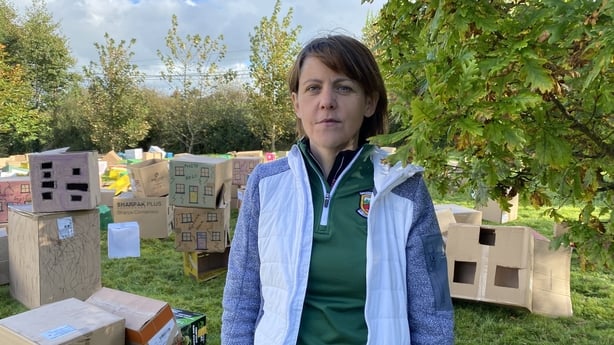The Oireachtas Housing Committee has been told that the current defective concrete block grant scheme is unworkable and inflexible.
Michael Doherty, Public Relations Officer of the Mica Action Group, said that around 7,000 homes were affected by defective blocks and warned that science was being ignored.
The Committee is discussing the Defective Concrete Blocks Bill, which the Government hopes to enact in coming weeks.
Mr Doherty said the terms of reference given to the Society of Chartered Surveyors Ireland were too narrow.
He told the committee that this left homeowners exposed, as the likes of foundations and fit out costs were not included.
He also appealed to politicians to allow "penalty free downsizing", so that people could build a smaller house.
Mr Doherty said that the current scheme was more like 80% redress.
He explained that some homeowners want to just take the money for their original house, build a smaller house, and "not have to go to the bank".
For this reason, he wanted homeowners to be allowed to downsize their homes in order to cover costs.
"Let people take the hit on the size of their home", he asked TDs and Senators.
He said that foundations, which are currently not included in the remediation scheme, could be found to be defective.
This would mean that houses, which replace the outer leaf of their walls, could end up having to demolish buildings entirely.
The founder of the Clare Pyrite Action Group, Dr Martina Cleary, said that she was an ordinary homeowner put in an extraordinary situation.
She said it was hard to describe the ongoing toxic stress that the problem of pyrite brought to her life.
Dr Cleary said that she felt as though she was on trial in this process, when in fact people like her were the victims.

An engineer told the committee that some quarry owners are doing "deals" with homeowners and "suppressing" problems with contaminated building materials.
Aidan O'Connell of Engineers Ireland said that he has now seen damage in 13 counties.
However, he warned that "quarry owners recognise that they have a problem, and they are suppressing some of the information" and "doing side-deals with homeowners".
Ultimately, he thinks "it's going to come out" where these quarries are.
He appealed for TDs who are aware of such locations to come forward and inform Engineers Ireland.
Paul Forde, Chair of the Expert Working Group, said that the Government has asked the National Standards Authority of Ireland to test foundations for possible mica damage. Once the report is available, we can then assess if foundations need to be addressed, he added.
Professor Paul Dunlop, Research Director for Geography and Environmental Sciences at Ulster University, said that there was concerning evidence that mica was not the only deleterious material in defective concrete blocks.
Fianna Fáil TD Cathal Crowe criticised the lack of time allocated to scrutinise the legislation.
Deputy Crowe said that there was a real risk that the full extent of damage to homes has not been realised, with other minerals possibly causing problems.
Social Democrats Housing Spokesperson, Cian O'Callaghan, asked if there were concerns that people would not sign up to the scheme as it would prevent them from taking class action against the State.
Mr Doherty explained that people were taking the legal action to retrieve the gap in funding between redress and the actual cost of rebuilding their home.
He said that under the scheme, they would be prevented from accessing any money they might win if they sign up to the redress scheme.







